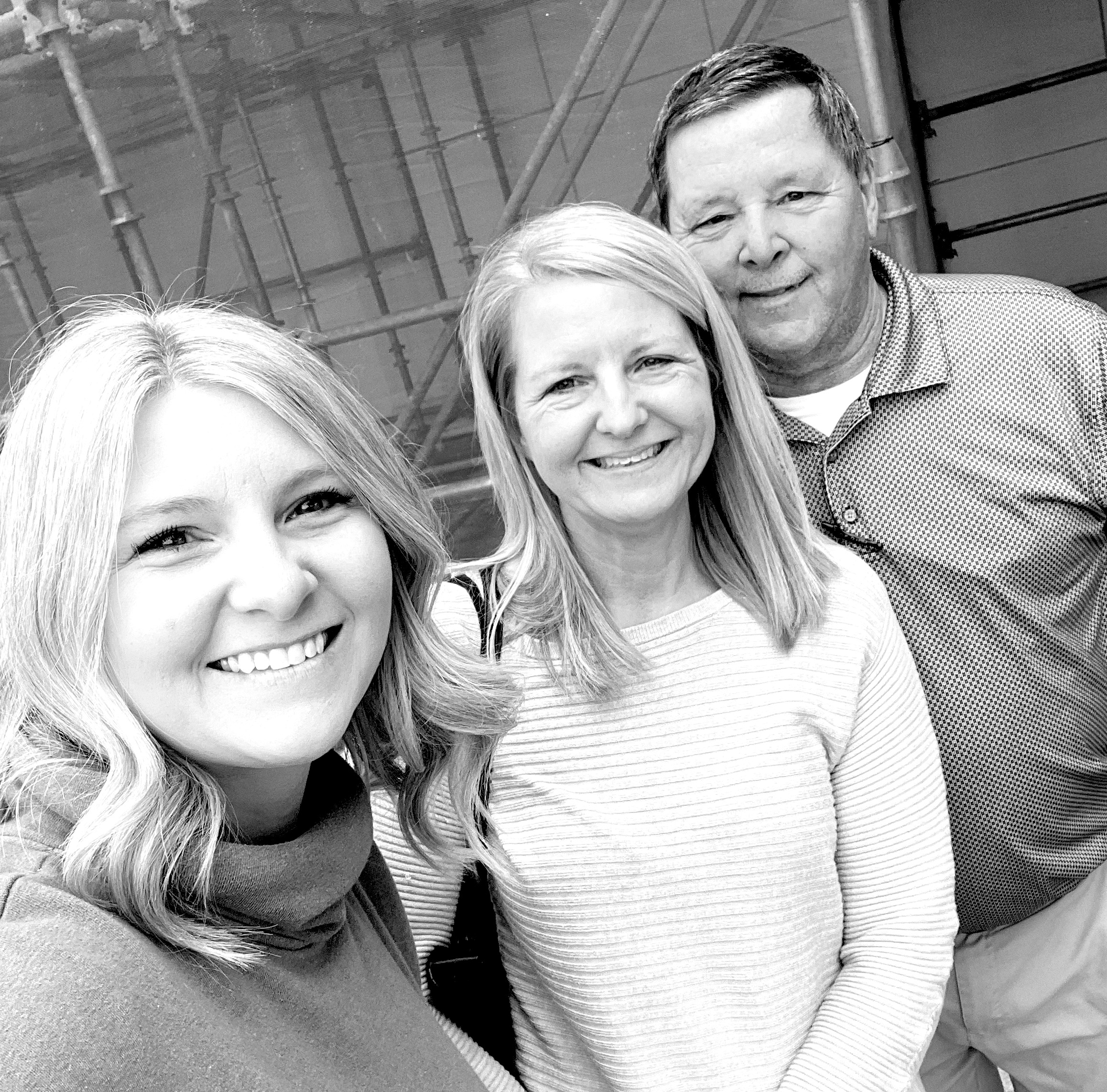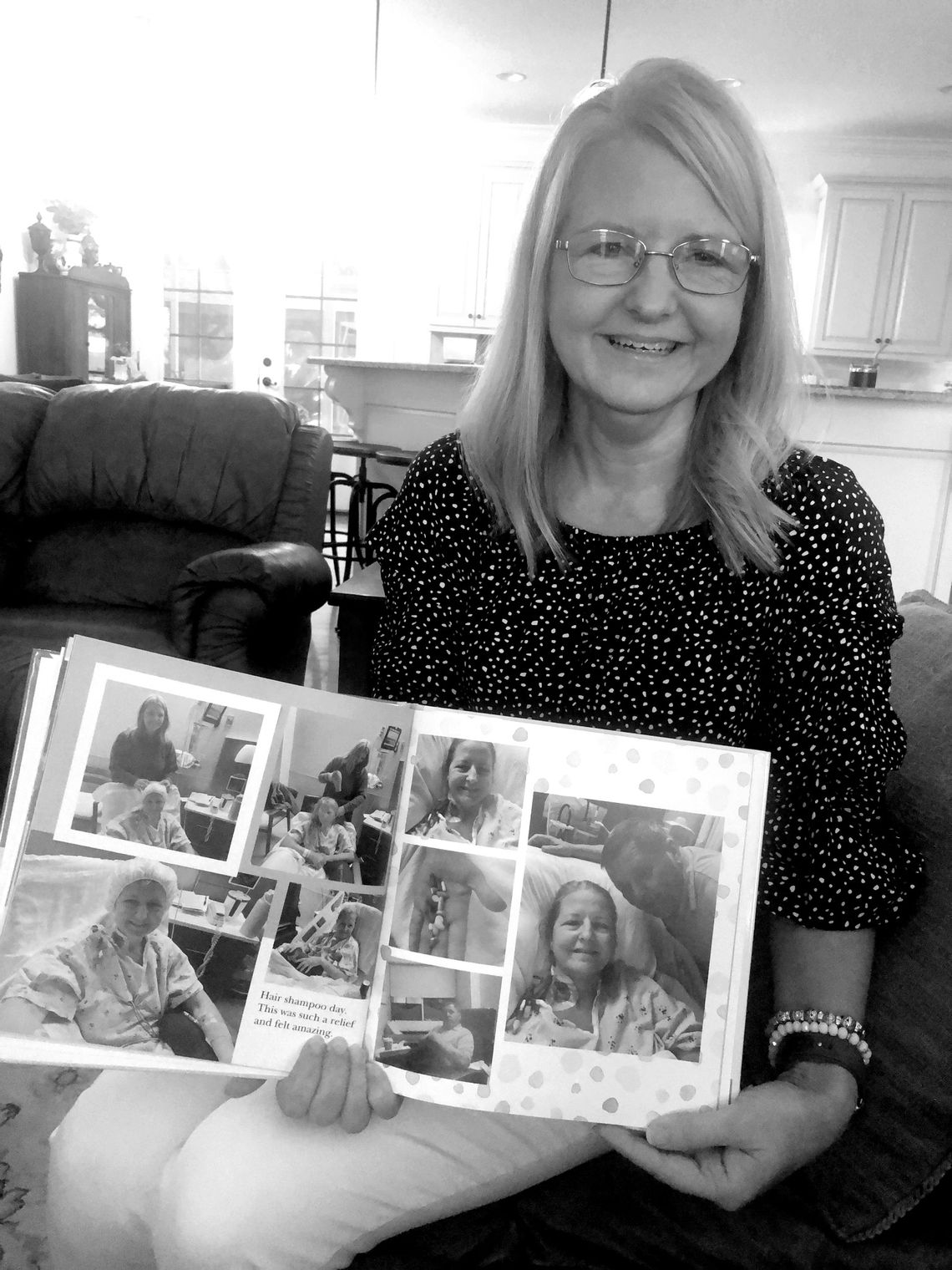God and Mayo Clinic see Blackshear woman through transplant
Ellen Griffin, a 55-yearold wife, mother and grandmother living deep in the heart of Pierce County says “God has controlled every miraculous step” of her life after successfully undergoing a pancreas transplant. Griffin underwent transplant surgery March 11 at Mayo Clinic in Jacksonville and returned home to ongoing recovery April 26.
Griffin says, “My healing today, which requires weekly trips to Mayo Clinic, is combined with my deep appreciation to the Mayo medical team, deep appreciation to the donor family and special appreciation and love to my wonderful family and friends for all their great support system, their emotional and spiritual help. I give God the Glory. I have to say, I had the best experience at Mayo as the medical team there is the most caring, kind and I can’t praise all of them enough — from the doctors, nurses and staff.”
The grateful transplant patient was in the hospital for two weeks, then transitioned to live at the Gabriel House on Mayo Clinic campus for another five weeks. “During the recovery period, there have been bumps in the road and some complications requiring additional treatment, but this is part of it,” Griffin says. “I was always assured by my medical team they would be with me every step of the way and have been.”
The mother of two is more comfortable now, enjoying her home with its flowering trees and the open fields across the road. One constant throughout her journey from transplant to recovery and then home has been Griffin’s devoted spouse.
“My husband Mark, who was and continues to be my primary caretaker, spent his days with me dispensing medication, preparing food, cooking and providing all the support I needed,” says Griffin. “I am so grateful for his love and patience during this amazing experience.”
While Griffin seems confident in her procedure now, she recalls her thankfulness that she was one of the 5 or 6 pancreas transplants chosen a year at the Jacksonville Mayo Clinic.
Recalling the surgery, she said, “The most tedious days of my surgery and recovery were confident for me as I had the great support given by my husband Mark, my daughter Courtney Hutcheson and her husband Canon (children Ella, Carter and Griffin) of Eastman and son Dustin Griffin (daughter Ava Kate) of Waycross, my mom Nancy Strickland, siblings, extended family and members of my church family, Swamp Road Baptist Church in Ware County.”
According to Griffin, “There are over 100,000 people in the United States who are waiting for organ transplants and unfortunately so many never receive the call that an organ is available. Being an organ donor is a very kind, generous and selfless decision that can be lifesaving to the recipient. There are so many in need and as a recipient I now realize more than ever how important being an organ donor is. I encourage people to consider saving lives and get educated on organ donation.” Griffin listed organs that can be donated, including the heart, kidneys, lungs, liver, pancreas,and intestines. Tissues such as corneas, skin, tendons, bone and heart valves can also be donated.
“I was told by my medical team a pancreas transplant is one of the most challenging to undergo. In 2016, I was diagnosed as a Type 1 diabetic, insulin dependent, and later deemed a brittle Type 1 diabetic where my blood sugar levels were very difficult to manage. I tried different insulins and the insulin pump, causing me nausea and sickness every day. Other organs were being affected by the diabetes, so my endocrinologist suggested a pancreas transplant to prevent further damage to other organsheart and kidneys.”
Diabetes occurs in the body when the pancreas doesn’t put out enough insulin to take care of food intake, causing the blood sugar in the body to rise to high levels. The pancreas produces insulin and discharges enzymes into the intestine. In Type 1 diabetes the person's pancreas produces no insulin and has to have insulin injections. Using insulin pumps has become a popular modern treatment. In Type 2 diabetes the patient might have enough insulin from the pancreas, depending on the intake of food. Having too much or too little sugar can be life threatening.
Griffin’s friend and local healthcare provider, Lori Henderson, referred her to an endocrinologist at the Mayo Clinic. During her first visit it was recommended to receive an evaluation by the pancreas transplant team. “I was immediately identified as a good candidate, and the surgeons recommended I move forward quickly,” says Griffin. “If I waited too much longer, the likelihood of more organ damage would prevent me being a candidate.”
Between August and November, Griffin underwent an extensive evaluation and testing period. After being officially approved by the Transplant Medical Board, Griffin was placed on the National Donor Register Transplant list.
“I was told one could be on the list anywhere from one to five years, usually waiting for a possible match. My 116 days on the list were less than average. I was chosen for a match on my first call, which is rare.”
Blood type is one of the factors considered in matching a donor. Griffin did not have the most common blood type, which was a concern and could also delay a donor match.
“Prior to the transplant, I was sick all the time and it was a daily struggle to attempt to get to a safe zone,” Griffin says. “There were several occasions I landed in the ICU for days due to ketoacidosis.”
Per the Mayo Clinic website, ketoacidosis is a serious complication of diabetes. Without enough insulin, the body begins to break down fat as fuel. This causes a buildup of acids in the bloodstream called ketones. If left untreated, the buildup of ketones can be dangerous, even life threatening. Griffin says other type 1 diabetics can probably relate to such daily challenges as she experienced.
According to Griffin, while the pancreas is normally located in the abdominal cavity behind the stomach, her new pancreas is located in the bottom right of her abdomen. The surgeons grafted a small portion of the patient's intestine to the pancreas to begin the transplant procedure.
“I had great peace and wasn’t scared even when they rolled me back to surgery. I knew this was God’s plan for my life and He had full control on the outcome. I had faith that God got me to this point and was going to carry me all the way through.”
Griffin credits The Mayo team for doing an amazing job educating her and ensuring she was completely informed before surgery.
“They covered every aspect you could possibly imagine from the surgery process, what to expect before and after, food safety, the emotional impact, medications, the healing and recovery process and much more,” says Griffin.
Eventually Griffin’s follow up testing and appointments at Mayo will phase from weekly to monthly, then to every 3-6 months and ultimately once a year. As for the future, Griffin says, “My future is dependent on the new pancreas continuing to produce insulin as it does today. There is always a chance if things turn negative, I will just have to go back to the insulin pump.”
“My pancreas transplant team, doctors and other medical people, said the pancreas is a very temperamental organ; doesn’t like to be touched, but they were amazed at how well I had progressed. To prevent rejection, I will take immunosuppressants for life, which causes the immune system to be compromised. I must be careful not to be exposed to any sickness, bacteria and high levels of stress. To protect myself, I wear a mask while in public or in a setting with large crowds or groups of people.”
Regarding another aspect of the life-changing surgery Griffin says, “At first I was remembering the pancreas donor and was very emotional and sad as I knew the family was grieving. I pray for the donor family and hope one day to thank them.”
Life is about the same for her family these days, but Griffin says they all “stand firm in our love and strength for one another and our love for our God, which ensures our daily lives.”
Griffin continues to work as Human Resources Manager for Republic Services, a position she has held for 14 years. 'My Republic family has been so supportive and wonderful during this time. I could not ask for a better employer who is very human-centered and truly cares for their people.”
Griffin’s husband Mark has been a claims adjuster for Farm Bureau for 14 years. The transplant survivor credits the bureau as well with being very supportive to during a very trying time.
For those with a similar diagnosis to her own, Griffin has some words of advice, “I encourage those who may be asking themselves would this be a path for them, to speak with their healthcare provider and explore the options. Mayo Clinic has a lot of information also published on their website – mayoclinic.org. The evaluation period is well worth the time and effort to have this outcome and a renewed chance at life.”

Courtney, Ellen and Mark Griffin are shown upon arrival at the Mayo Clinic for transplant.









